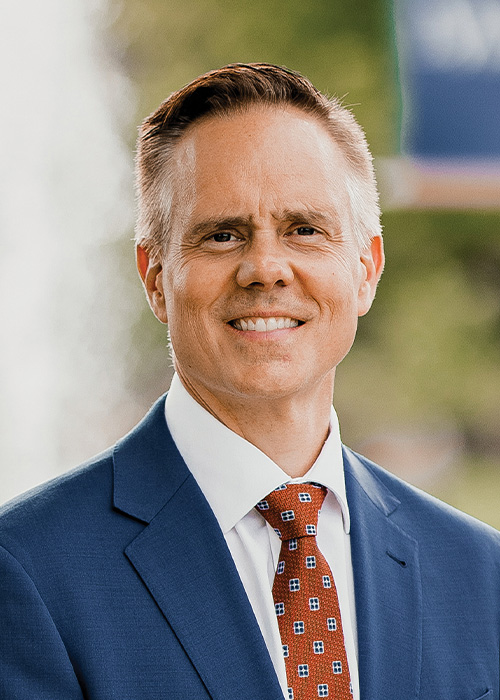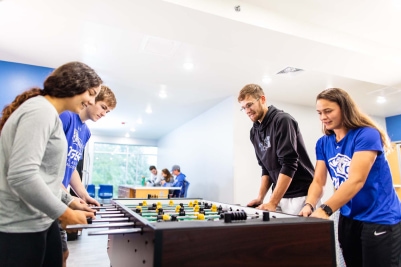Resilience and Hope
An editorial by DWU President Dan Kittle.

Editorial by Daniel R. Kittle, Ph.D., President, Dakota Wesleyan University
A recent study identified resilience as one of the primary traits of a successful university president. While this finding isn’t surprising, the way effective presidents understand and act with resilience was unexpected. The results of this study have profound implications for any leader, coach, teacher, student, or citizen who aspires to live a life of meaning and purpose.
The study, conducted by two experts in higher education with whom I recently had the chance to visit , revealed that resilience isn’t synonymous with stamina or having thick skin. Effective leadership doesn’t mean pushing oneself to exhaustion, nor does it involve being stubborn or single-minded. Instead, the findings affirm what I’ve observed throughout my career from mentors and colleagues, especially at Dakota Wesleyan University (DWU): resilient leaders recognize their limits, seek support, and foster collaboration.
To be a resilient leader, the study found that leaders must surround themselves with good people and have the humility to ask for help when needed. This approach contrasts sharply with the lone-wolf mentality often associated with leadership. At DWU, I’ve seen firsthand how teamwork amplifies the ability to overcome challenges. Whether it’s navigating the complexities of higher education or responding to unexpected crises, a collaborative approach fosters innovative solutions and strengthens the community.
Modeling resilience in this way—emphasizing teamwork and active listening—connects directly to another attribute highlighted by the study: trust. Resilient leaders not only need to be trustworthy but must also work actively to build trust among those they lead. I find this relationship between resilience and trust particularly interesting and worth reflection. Both resilience and trust emphasize the importance of relationships. We’re able to sustain the energy necessary to lead when we are lifted up by the spirit and gifts of others. We are able to build relationships of trust when we listen and act with people.
Effective leaders ultimately need to give people hope. People need to believe that they can overcome challenges and realize opportunities. As I listened to the two experts discuss their findings, another university president in the room reminded us of the connection between resilience, trust, and hope. The president shared a quote attributed to educator and writer David Orr: “Hope is a verb with its sleeves rolled up.” The sentiment of that quote struck a chord with me. It reminds me of the kind of leader I aspire to be—one who seeks to do hard things with people and for the communities we serve.
I take this as a personal call to action, and I believe it can be a call to action for all of us. Whether we are leading an institution, mentoring a student, or simply striving to make a positive impact, let us remember that resilience is not about going it alone. It’s about recognizing our interdependence, building trust, and embracing the collective strength of those around us. By doing so, we can create communities that not only endure but find hope in the face of adversity.












